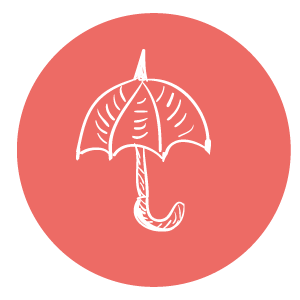DISCRIMINATION
![]() information/reaction/support/actions
information/reaction/support/actions
Discriminatory behaviour is defined as behaviour that results in a given person being treated differently (usually unfavourably and unfairly) than another in a comparable situation due to their personal characteristics (e.g., age, sexual orientation, disability).
Discrimination is a form of unjustified, biased and stereotype-based marginalisation of specific social groups which share a specific common feature.

Knowledge base
- Definition and types of discrimination
- FAQ
- Anti-discrimination guidebook
- Anti-discrimination procedure (available in Polish)
- Documents

Have you witnessed discrimination?
- React!
- Oppose to discrimination. Here you will find advice on how to respond to discrimination.
- Contact the people who will help you.
Each one of us has the necessary resources to oppose discrimination.

Where to look for support
There are a number of units at the University of Warsaw that can provide support. You can find a description of those units here.
If you have any doubts about whom you should reach out to, contact the Team of the Academic Ombudsman for Student and Employee Affairs first.
The Ombudsman can be contacted in person, by email or by telephone.
It is necessary to arrange a meeting in advance by e-mail.
Address: Dobra 56/66 (1st floor, room No 1.60 C), 00 – 312 Warszawa
Facebook page: The Academic Ombudsman at the University of Warsaw
Website: http://ombudsman.uw.edu.pl/
e-mail: ombudsman@uw.edu.pl
Phone number: 22 55 27 185
If you want to report discrimination or unequal treatment, you can choose either path:
- Informal resolution by the Team of the Academic Ombudsman
A person who comes to the Academic Ombudsman with a problem of sexual harassment, discrimination or unequal treatment can be supported by the following actions:
listening to and supporting you in choosing how to resolve the problem, including helping you name and diagnose potential legal and psychological violations, as well as providing relevant information on the University of Warsaw’s rules and regulations;
- intervening in the case, e.g., by talking to potential perpetrators or their supervisors to provide feedback, highlight irregularities and call for an end to violations;
- support for the resolution of conflicts accompanied by discrimination or unequal treatment, e.g., by mediation;
- support in contacting other university units providing psychological and legal assistance, including assistance in initiating action under the Anti-Discrimination Procedure;
- forwarding the information presented to the authorities of the unit or university, in particular, drawing up a request to the Rector for the initiation of disciplinary proceedings.
It entirely depends on the reporting person to decide what action is to be taken by the Academic Ombudsman. Neither the Academic Ombudsman nor representatives of their team intervene without the consent of the reporting person, except for life and health emergencies.
The Academic Ombudsman’s Team can be contacted in person, by email or by telephone.
It is necessary to arrange a meeting in advance by e-mail.
Contact details:
Address: Dobra 56/66, mezzanine, room No 160C – University of Warsaw Library
Facebook page: The Academic Ombudsman at the University of Warsaw
Website: http://ombudsman.uw.edu.pl/
e-mail: ombudsman@uw.edu.pl
Phone number: 22 55 27 214
- Formal submitting a complaint about unequal treatment, discrimination (including harassment and sexual harassment), mobbing and other undesirable behaviour – submit a complaint
Formal submissions of complaints to the Unequal Treatment and Discrimination Commission and the Mobbing and Other Undesirable Behaviour Commission are regulated by the ordinance of the Rector of the UW No. 21 on policies on preventing unequal treatment, discrimination, mobbing, and other undesirable behaviour at the University of Warsaw.
The ordinance describes step by step who is entitled to submit a complaint, how to file a complaint, how the proceedings are conducted and what are the consequences of confirming undesirable behaviour.
Who can submit a complaint:
- any person directly affected by unequal treatment, discrimination (including harassment and sexual harassment) and other undesirable behaviour
- a person working at the UW (under an employment contract and providing work/services under civil law contracts, regardless of the type of work and position held) directly affected by mobbing
Necessary conditions for filing a complaint:
- personal reporting of the matter by the person directly affected by the event (anonymous reports will not be proceeded)
- the event must concern an employee, Ph.D. student or student of the UW, on the premises of the University or be functionally related to the activities of the UW (former employees, Ph.D. students and students are not subject to the procedure)
- the report should be submitted within 3 years of the event or the last of a series of events that are the subject of the report (in exceptionally justified situations, it will be possible to accept a report relating to events that occurred earlier).
Complaint:
- submitted in paper or electronic form to the Team of Coordinators for counteracting unequal treatment, discrimination, mobbing and other undesirable behaviour (the Team consists of two coordinators).
- coordinators ensure full confidentiality
- the coordinator initially examines the complaint and immediately conducts an interview with the reporting person(s)
- if the likelihood of the behaviour described in the complaint is confirmed, the case is referred to the appropriate Commission – the Unequal treatment and discrimination Commission or the Mobbing and other undesirable behaviour Commission
- the coordinator may also consider the report unjustified and leave it without further action – this decision may be appealed to the Chairman of the relevant Commission
- in other cases, the coordinator may refer the reporting person, with his or her consent, to the appropriate university unit that can provide assistance in solving the problem
Proceedings:
- information about the initiation of proceedings before the appropriate Commission is sent to the person reporting the case, to the person concerned and to his/her superior (from the moment the case is reported to the Commission, the proceedings cease to be confidential)
- the purpose of the proceedings before the Commission is to express an opinion on the complaint and provide recommendations on further actions
- the chairman of the relevant Commission, within 7 days from the date of receiving the complaint from the Coordinator, appoints a three-person Opinion Team from among the Commission to clarify the matter
- the person reporting the case and the person against whom the complaint was submitted have the right of access to all documents necessary to clarify the case, including the content of the complaint and other documents
- the proceedings conducted by the Review Team should be completed within four months (in justified circumstances, this deadline may be extended)
Remedial measures recommended by the Commission:
- towards the person engaged in unequal treatment, discrimination, mobbing or other undesirable behaviour, the Commission may recommend, e.g.: an obligatory participation in anti-discrimination or anti-mobbing training or workshops, an obligation to apologize, refer the case to a disciplinary spokesman, terminate an employment contract or civil-law contract
- towards the aggrieved party, the Commission may recommend in particular: psychological support, change of class group, examiner, supervisor or auxiliary supervisor, transfer within the University structures.
Consequences of the Commission issuing an opinion:
The opinion of the Commission, containing a written justification of the adopted position, is forwarded to the Rector and the head of the unit or other appropriate superior, as well as to the person initiating the proceedings and the person against whom the proceedings were pending.
If the Commission finds a case of unequal treatment, discrimination, including harassment, sexual harassment, mobbing or other undesirable behaviour, the Rector may decide to:
- imposing a warning if the act constitutes a minor disciplinary offense and proving guilt does not require explanatory proceedings;
- imposing a disciplinary penalty under the Labour Code;
- instructing the disciplinary spokesman (respectively for employees who are academic teachers or for students and doctoral students) to conduct explanatory proceedings and, if there are grounds, to initiate a disciplinary procedure;
- termination of the employment contract or the civil law contract;
- application of the remedial measures recommended by the Commission.
The Rector, within one month of receiving the Commission’s position, informs in writing the relevant Commission and the Coordinator, as well as the reporting person, the person whom the report concerns and the superior or head of the relevant organizational unit about any further actions taken in the case.
Contact details:
The Team of Coordinators for counteracting unequal treatment, discrimination, mobbing and other undesirable behaviour
Anna Grędzińska – (unequal tretment, discrimination including harassemnt and sexual harassemnt)
Magdalena Miksa (mobbing and other undesirable behaviour)
Address: Dobra 56/66 (1st floor, room No 1.60)
00 – 312 Warszawa
e-mail: zespolkoordynatorow@uw.edu.pl
Contact us – you can meet with our experienced staff in a safe and confidential setting; we will listen to you and help you plan the next steps
Actions
At the UW, we have a number of activities to help combat discrimination.
See:
News

Kampania “16 dni” – Jak się zaangażować w przeciwdziałanie przemocy?
09 12 2025
Jednym z głównych celów kampanii 16 Dni Przeciwko Przemocy ze Względu na Płeć jest mobilizowanie społeczności do działania. Przemoc - w domu, w relacjach, w pracy, na Uniwersytecie czy w ...
Read more
Kampania “16 dni” – przemoc ekonomiczna
08 12 2025
Przemoc ekonomiczna jest jedną z najmniej rozpoznawanych form przemocy, a jednocześnie jedną z najbardziej destrukcyjnych. Polega na przejmowaniu kontroli nad finansami i zasobami drugiej osoby, co prowadzi do jej zależności, ...
Read more
Kampania “16 dni” – Czym jest świadoma zgoda (consent)?
04 12 2025
Zgoda to świadome, dobrowolne i jednoznaczne „tak”. W sferze intymnej, ale też cyfrowej, prywatnej i zawodowej, brak zgody oznacza naruszenie granic i traktowany jest jako forma przemocy. Edukacja o zgodzie ...
Read more

